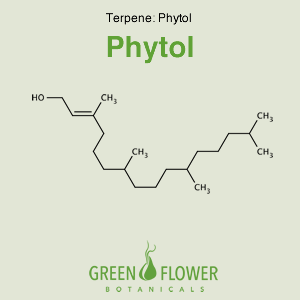
Phytol – Terpene
Description:
EFFECTS: Antischistosomal, Anti-cancer, Hypolipidemic, Antidiabetic.
Strains containing Phytol include: OG Kush.
Phytol is the product of chlorophyll metabolism in plants. It is chemically called an acrylic diterpene alcohol which is used in the manufacture of Vitamin E and K which are important in the many functions of the human body. The use of phytol in the human body is indispensable, it is essential in activating enzymes that have a positive effect on the production of insulin. It can also be effective in the decrease of blood cholesterol levels. Phytol has been researched for its anti-cancer properties with effects on both Gastric Adenocarcinoma Cells (AGS) and Glioblastomas. As well, phytol possesses promising antischistosomal properties. Schistosomiasis is a major endemic disease that affects hundreds of millions worldwide. Phytol has shown great promise for the treatment and control of this parasitic disease.
⇩ View A – Z Index of Terpenes ⇩
Effects
Antischistosomal
Anti-cancer
Hypolipidemic
Antidiabetic
Research
Antischistosomal
Schistosomiasis is a major endemic disease that affects hundreds of millions worldwide. Since the treatment and control of this parasitic disease rely on a single drug, praziquantel, it is imperative that new effective drugs are developed. Here, we report that phytol, a diterpene alcohol from chlorophyll widely used as a food additive and in medicinal fields, possesses promising antischistosomal properties in vitro and in a mouse model of schistosomiasis mansoni.
Phytol, a Diterpene Alcohol from Chlorophyll, as a Drug against Neglected Tropical Disease Schistosomiasis Mansoni
Anti-cancer
Phytol, a diterpene alcohol produced from chlorophyll, is used widely as a food additive and an aromatic ingredient. However, the molecular mechanisms behind the cytotoxic effects of phytol in cancer cells are not understood. The current study demonstrated that phytol induces apoptosis in human gastric adenocarcinoma AGS cells.
Phytol Induces Apoptosis and ROS-Mediated Protective Autophagy in Human Gastric Adenocarcinoma AGS Cells
Glioblastoma (GBM) is the most common primary brain tumor. Genetic mutations may reprogram the metabolism of neoplastic cells. Particularly, alterations in cholesterol and fatty acid biosynthetic pathways may favor biomass synthesis and resistance to therapy. Therefore, compounds that interfere with those pathways, such as phytol (PHY) and retinol (RET), may be appropriate for cytotoxic approaches.
Toxic effects of phytol and retinol on human glioblastoma cells are associated with modulation of cholesterol and fatty acid biosynthetic pathways.
Antidiabetic
This study concluded that the insulin sensitizing/anti-diabetic effect of phytol is mediated by partly from activation of nuclear receptors and heterodimerization of RXR with PPARγ by phytanic acid.
Phytol/Phytanic Acid and Insulin Resistance: Potential Role of Phytanic Acid Proven by Docking Simulation and Modulation of Biochemical Alterations
CBD Oils Containing Phytol
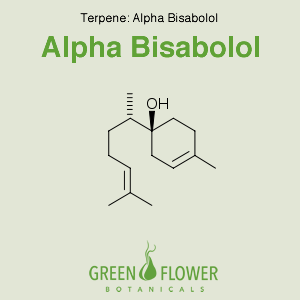
Alpha Bisabolol
EFFECTS: Analgesic, Anti-cancer, Anti-inflammatory, Antifibrosis, Antifungal, Antocoagulant, Drug Potentiator.
Learn about Alpha Bisabolol »
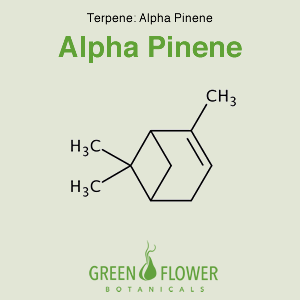
Alpha Pinene
EFFECTS: Anti-bacterial, Anti-cancer, Anti-inflammatory, Bronchodilator, Memory Enhancer.
Learn about Alpha Pinene »
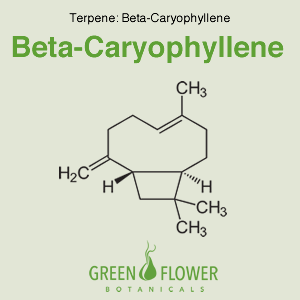
Beta Caryophyllene
EFFECTS: Analgesic, Anti-inflammatory, Antioxidant, Gastric-protective.
Learn about Beta Caryophyllene »
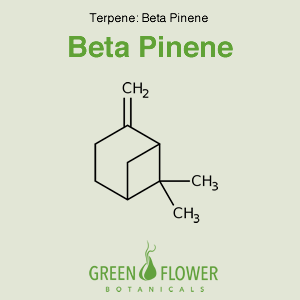
Beta Pinene
EFFECTS: Expectorant, Bronchodilator, Anti-inflammatory, Antiseptic.
Learn about Beta Pinene »
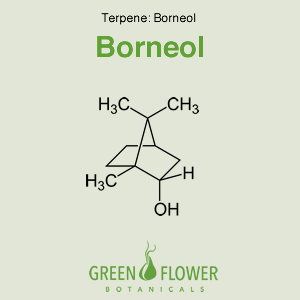
Borneol
EFFECTS: Analgesic, Anti-cancer, Anti-inflammatory, Antifibrosis, Antifungal, Antocoagulant, Drug Potentiator.
Learn about Borneol »
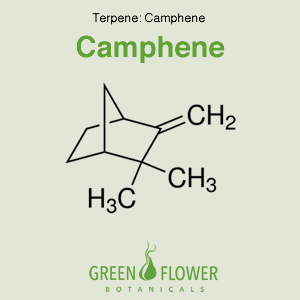
Camphene
EFFECTS: Hypolipidemic, Anti-bacterial, Antifungal.
Learn about Camphene »
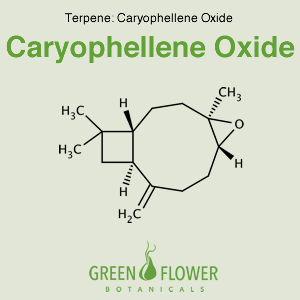
Caryophyllene Oxide
EFFECTS: Antifungal, Antocoagulant.
Learn about Caryophyllene Oxide »
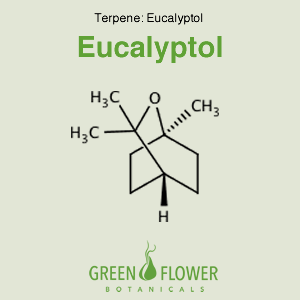
Eucalyptol
EFFECTS: Anti-Alzheimer's, Anti-Asthma, Anti-bacterial, Anti-cancer, Anti-inflammatory, Antioxidant.
Learn about Eucalyptol »
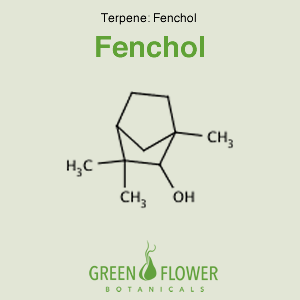
Fenchol
EFFECTS: Antioxidant, Antimicrobial, Antifungal.
Learn about Fenchol »
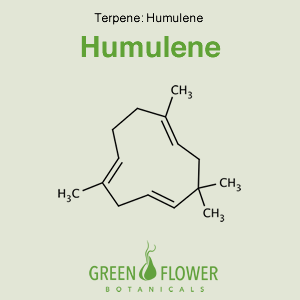
Humulene
EFFECTS: Anti-bacterial, Anti-cancer, Anti-inflammatory.
Learn about Humulene »
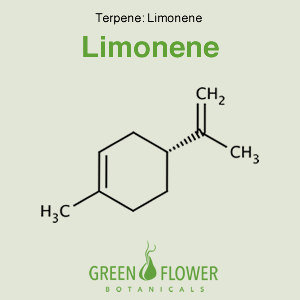
Limonene
EFFECTS: Anti-anxiety, Anti-cancer, Anti-inflammatory, Antidepressant.
Learn about Limonene »
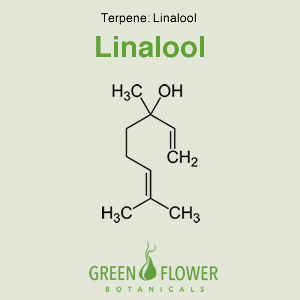
Linalool
EFFECTS: Analgesic, Anti-anxiety, Anti-inflammatory, Anticonvulsant, Sedative.
Learn about Linalool »
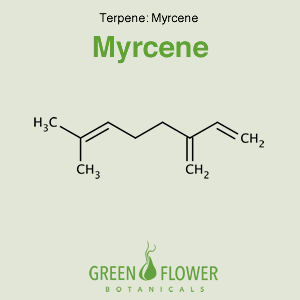
Myrcene
EFFECTS: Analgesic, Antioxidant, Sedative.
Learn about Myrcene »
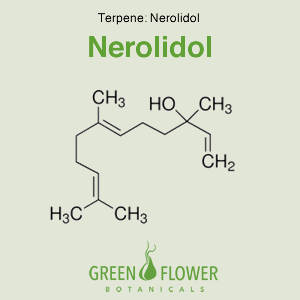
Nerolidol
EFFECTS: Antiprotozoan, Topical Drug Enhancer.
Learn about Nerolidol »
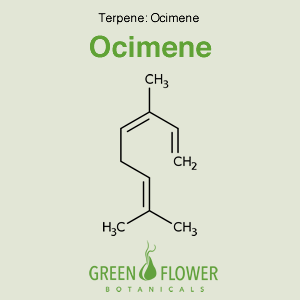
Ocimene
EFFECTS: Anti-inflammatory, Antifungal, Antiviral.
Learn about Ocimene »

Phytol
EFFECTS: Antischistosomal, Anti-cancer, Hypolipidemic, Antidiabetic.
Learn about Phytol »
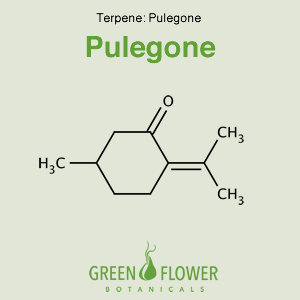
Pulegone
EFFECTS: Expectorant.
Learn about Pulegone »
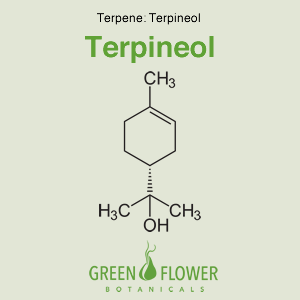
Terpineol
EFFECTS: Antibacterial, Antioxidant, Anti-cancer, Sedative, Anti-inflammatory.
Learn about Terpineol »
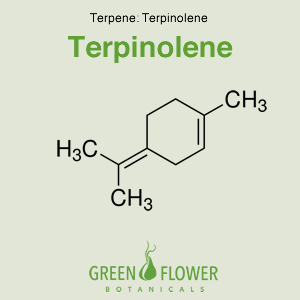
Terpinolene
EFFECTS: Anti-bacterial, Anti-cancer, Antioxidant, Sedative.
Learn about Terpinolene »
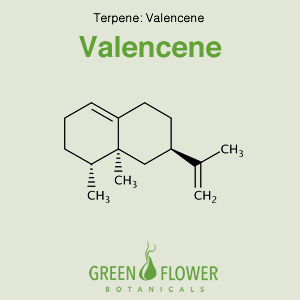
Valencene
EFFECTS: Anti-inflammatory.
Learn about Valencene »
